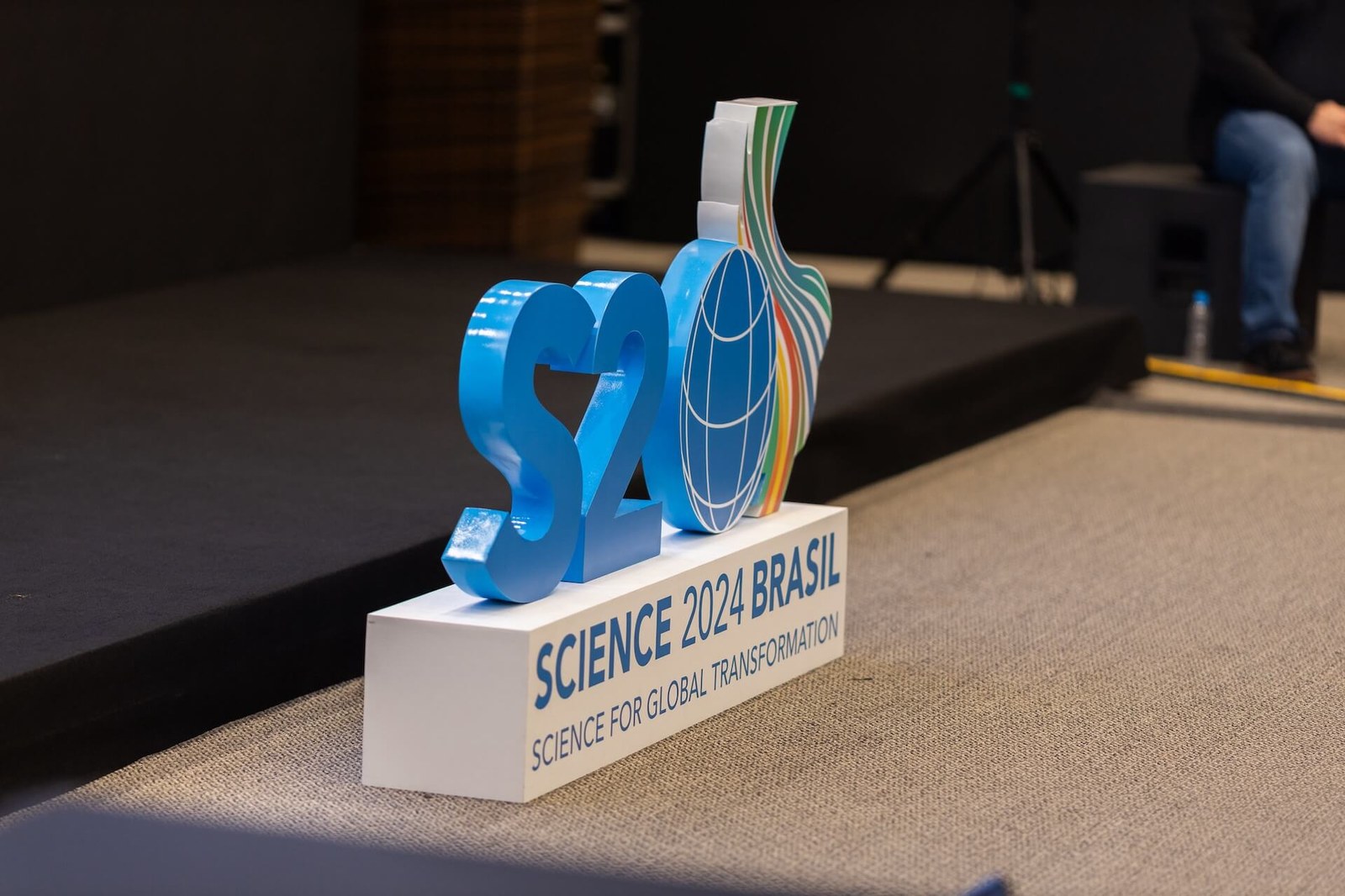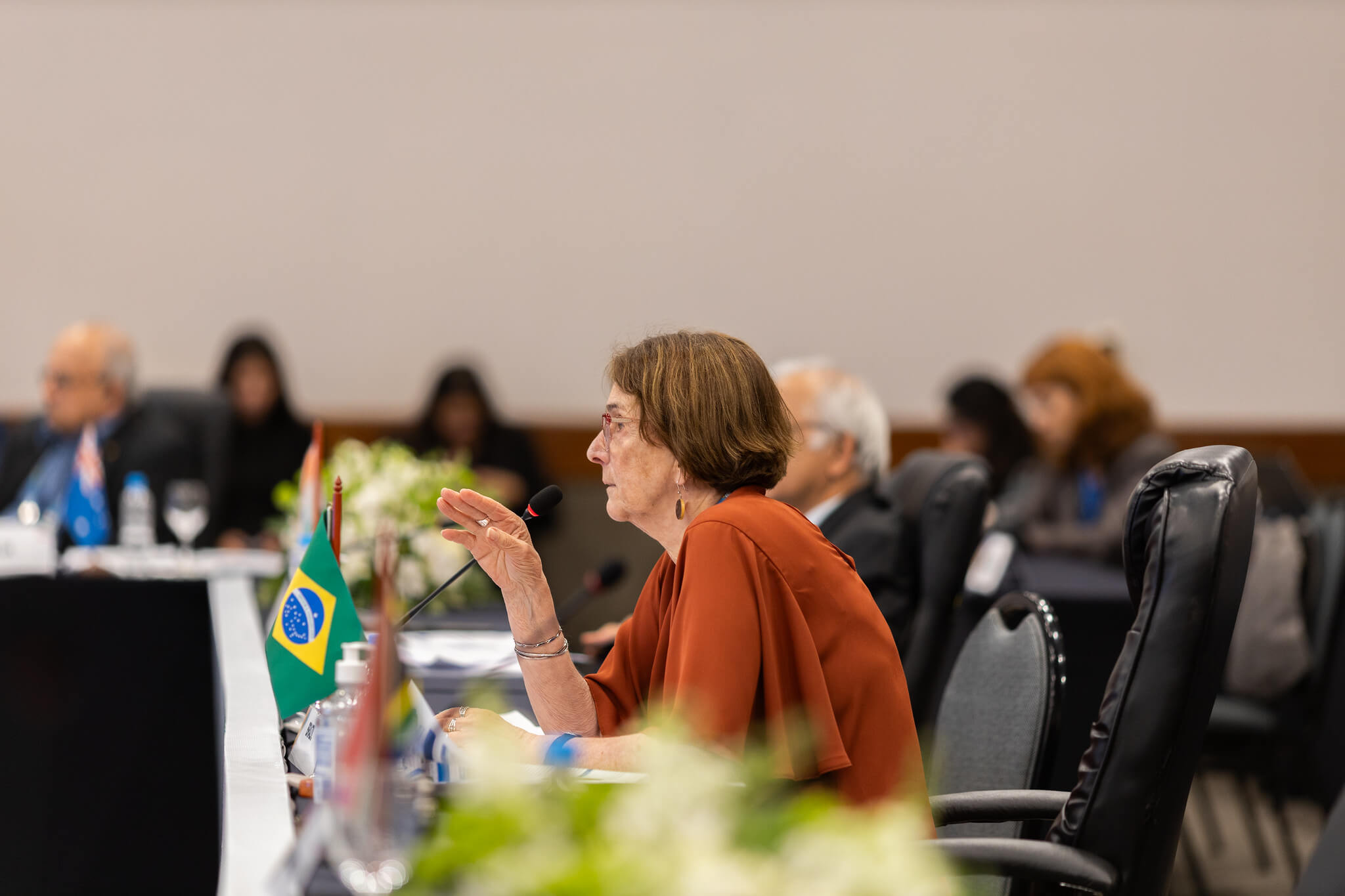Science 20 approves document for G20 leaders on social justice in science
The G20 Social's Science and Technology engagement group concluded its Summit on Tuesday (02), presenting its document of recommendations to the forum's state and government leaders. In accordance with the United Nations' 2030 Agenda, social justice was part of all the recommendations.

The Science 20 (S20) engagement group, which debates science and technology at the G20 Social, wrapped up its Summit on Tuesday (02). Under the direction of Brazilian Academy of Sciences (Academia Brasileira de Ciências /ABC), with Helena Nader as president, the group discussed artificial intelligence, bioeconomy, energy transition, health and social justice following two days of meetings in Rio de Janeiro.
The highlight was the conclusion of the document containing recommendations to the G20 leaders of state and government on these five axes. This represents an important step toward the November summits (of leaders and the G20 Social), which will also be held in Rio de Janeiro. Helena Nader believes that Brasil is playing an important leadership role and has the potential to make a difference in the G20 by prioritizing debates from the Global South. The S20, along with the G20, forms a troika with India and South Africa, which hold the forum's last (2023) and next (2025) presidency.
"During these discussions, Brasil proposed and listened to everyone, resulting in the creation of a more sensitive collective document. The G20 can address certain needs and approaches from the Global South. G20 Brasil is a leader that can make changes within this G20, with social engagements, such as with us in science and technology," said the biomedical doctor, coordinator of the S20 this year.
The ABC president also explained this year's slogan, "Science for Global Transformation," and how it aligns with the United Nations' 2030 Agenda, which focuses on eradicating poverty and promoting a dignified life for all. In this sense, the axis of social justice intersects with all other S20 themes.
"Agenda 2030 is knocking at the door; 2030 is tomorrow. This declaration was signed by 193 countries in 2015, including the G20 members. However, if we included the 17 SDGs (Sustainable Development Goals) in this discussion, many people would pay attention, so we included themes that are related to the goals but in a different way. Social justice includes equity, gender issues, race, and everything we dream of", she emphasized.
Helena Nader believes that Brasil is playing an important leadership role and has the potential to make a difference in the G20 by prioritizing debates from the Global South. The S20, along with the G20, forms a troika with India and South Africa, which hold the forum's last (2023) and next (2025) presidency.

Science 20 is the first of the 13 G20 Social groups to complete the document, which must be signed by the presidents of the countries' science academies by July 19.
Here is a summary of the approvals:
Artificial Intelligence
Develop policies in an AI-driven economy that are founded on shared ethical principles to ensure innovation, as well as job security and workers' rights;
Contribute to establishing AI regulations and data governance standards in in a fair way that respects human values;
Work together to create and share valuable and well-managed scientific big data sets;
Pursue the establishment of intergovernmental frameworks to oversee AI technologies that can operate beyond human control or supervision.
Bioeconomy
G20 countries should agree on the role of the bioeconomy as one of the strategies to tackle climate change, biodiversity loss, poverty and human and non-human health issues;
Develop a joint policy framework that allows countries to implement bioeconomy programs, invest in social and technological innovations, share critical knowledge, improve quality of life and protect natural resources.
Energy Transition
Global efforts to reduce emissions in the energy transition process must be based on increasing the use of low-emission energy sources, in combinations that vary from one country to another, moving towards the phasing out of coal;
Carbon capture, utilization and storage should be used to minimize CO2 emissions from fossil fuels.
Health Challenges
Ensure global access to essential vaccines, medicines and diagnostic tools for everyone;
Promote sustainable local and regional production through capacity building in research, innovation, knowledge sharing and technology transfer;
Promote effective communication strategies to disseminate health information, combat misinformation and conduct health campaigns;
Develop policies to promote healthy lifestyles, including physical activity and quality nutrition;
Leverage global resources focused on the health impacts of climate and environmental change, with a focus on groups with known vulnerabilities, such as those exposed to extreme weather events.
Social Justice
Expand infrastructure for universal internet access and increase digital literacy to ensure that all segments of society benefit from digital advances;
Develop inclusive and equitable approaches to digital development;
Address science-related misinformation in digital media to avoid adverse impacts on society, while developing national, regional and global strategies involving scientific communities and civil society.
The final S20 document will be delivered to the G20's Sherpas on Thursday (04), in an unprecedented meeting between the Sherpas Track and the G20 Social. In addition to the S20, the remaining 12 engagement groups will also deliver their results.